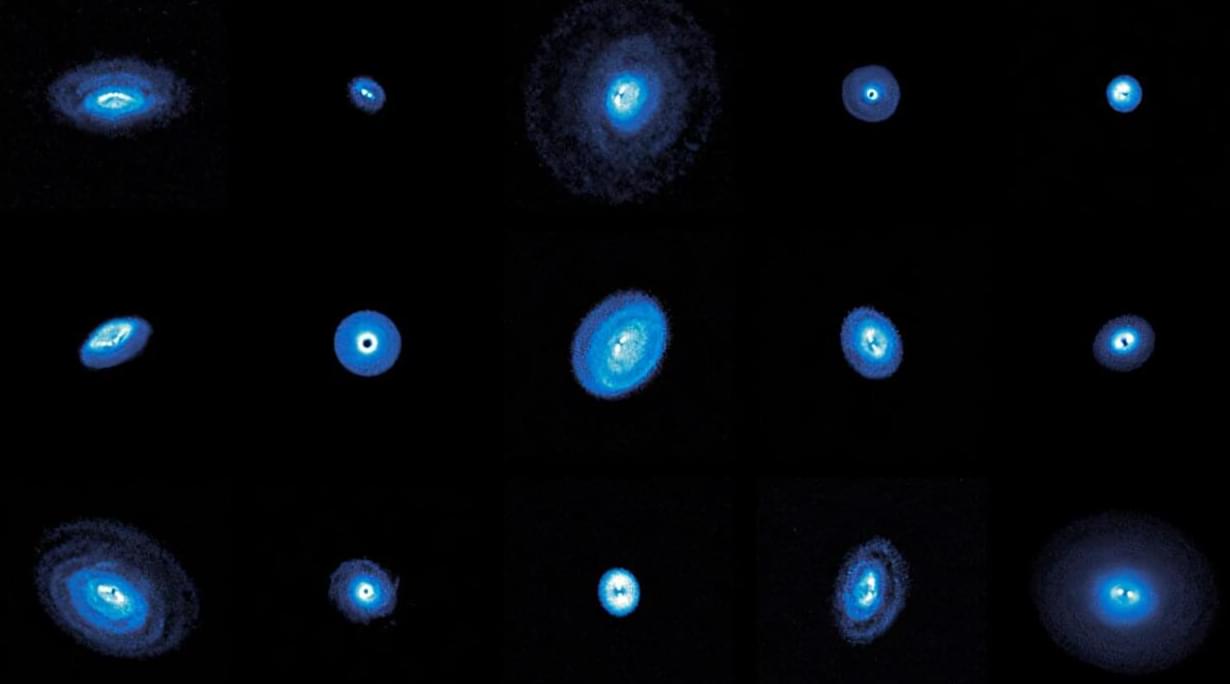A team of international astronomers led by Richard Teague, the Kerr-McGee Career Development Professor in the Department of Earth, Atmospheric and Planetary Sciences (EAPS), has gathered the most sensitive and detailed observations of 15 protoplanetary disks to date, giving the astronomy community a new look at the mechanisms of early planetary formation.
“The new approaches we’ve developed to gather this data and images are like switching from reading glasses to high-powered binoculars—they reveal a whole new level of detail in these planet-forming systems,” says Teague.
Their open-access findings were published in a special collection of 17 papers in The Astrophysical Journal Letters, with several more coming out this summer. The report sheds light on a breadth of questions, including ways to calculate the mass of a disk by measuring its gravitational influence and extracting rotational velocity profiles to a precision of meters per second.
